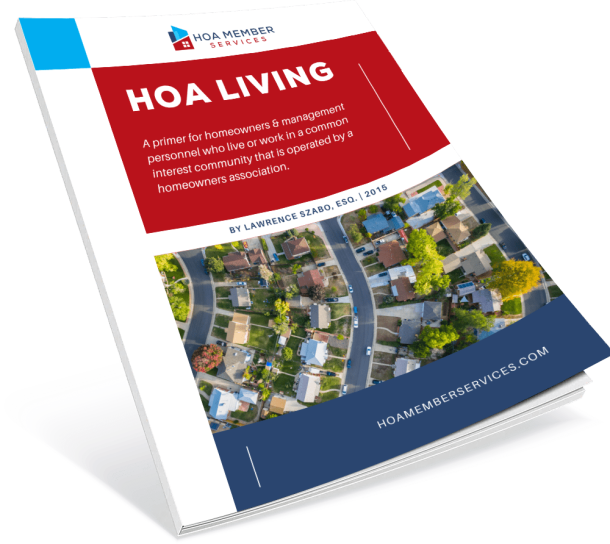You bought your dream home. The lawn is manicured, the neighbors wave, and everything feels…orderly. Then it happens, a new rule appears out of nowhere. No more street parking overnight. You wonder, “Can an HOA change rules after I’ve already moved in?”
You’re not alone in asking that. Thousands of homeowners face rule changes they didn’t expect — some minor, others disruptive. The truth is, yes, homeowners associations (HOAs) can change rules after you buy in. But they must follow specific rules themselves to do so legally and fairly.
This article breaks down how it works, from the documents that give HOAs their power to your rights as a homeowner. Whether you’re navigating a proposed rule change, fighting an emergency rule, or simply trying to understand your community better, you’re in the right place.
Let’s start by understanding what HOAs are and why they matter more than you might think.

What Are Homeowners Associations and How Do They Work?
A homeowners association (HOA) is more than just a neighborhood committee. It’s a legal entity—often a nonprofit corporation—created to manage and maintain shared spaces, set standards, and enforce community rules.
If your home is part of an HOA, you’re automatically a member. That comes with benefits and obligations.
Here’s how homeowners’ associations typically function:
- The HOA board: An elected group of board members (usually residents) who make decisions, handle finances, and oversee enforcement.
- Governing documents: These include the CC&Rs, bylaws, and other regulations that define how the HOA operates.
- Operating rules: Day-to-day rules and regulations, like trash can placement or landscaping standards, enforced by the HOA.
The goal? To preserve property values, ensure community standards, and support public health and safety.
But understanding the role of homeowners associations and how they function also means knowing where their authority comes from and how far it extends. That knowledge becomes especially important when the HOA board decides to update or change rules.
Next, let’s break down the documents that give HOAs their power and set their limits.
Understanding Governing Documents: The Foundation of HOA Power
Before an HOA can enforce anything, it needs authority, and that comes from its governing documents. These legal documents outline how the HOA operates, how rules and regulations are created or changed, and what limitations exist.
The main documents include:
- CC&Rs (Covenants, Conditions, and Restrictions): These are recorded with the county and dictate how properties can be used.
- Bylaws: These define the structure of the HOA board, election procedures, and how HOA meetings are conducted.
- Operating rules: These cover everyday issues like parking, noise, or paint colors.
The association’s governing documents also outline how to make a proposed rule change, including notice requirements, majority vote procedures, and what qualifies as a valid rule change.
It’s worth noting that state laws and local laws can override or influence what’s enforceable, especially when a rule conflicts with public policy.
Every homeowner should review these documents before buying (or at least during due diligence) to understand their rights and responsibilities. You can often find them through your HOA management company or recorded with the county recorder’s office.
Now, let’s answer the big question: Can an HOA change rules after you’ve moved in?

Can an HOA Change Rules After Purchase? (Yes, But With Limits)
Yes, an HOA can change rules after purchase, but it’s not as simple as a board vote behind closed doors. The process must follow steps outlined in the governing documents and comply with state laws, local laws, and sometimes even federal statutes.
When a new rule is being introduced, the HOA board must usually present a proposed rule change to association members. This often includes:
- Written notice detailing the change
- A chance for homeowners to provide feedback, usually at HOA meetings
- A majority vote by the board or community, depending on the type of rule
These procedures ensure the change is legally binding and not arbitrary. Still, many homeowners feel blindsided, especially when changes affect existing rules they relied on when purchasing.
Keep in mind that HOA rule changes can address anything from rental restrictions to landscaping, and while legal, not all are reasonable or enforceable.
Now let’s have a look at the types of rules HOAs enforce, and how they affect daily life.
Typical HOA Rules and What They Regulate
HOA rules are designed to maintain order, protect property values, and promote a uniform community appearance, but they can vary widely depending on location and the type of development.
Common areas of regulation include:
- Exterior modifications: Homeowners may need approval before painting, adding fences, or changing roofing materials.
- Parking and vehicles: Rules often limit street parking, commercial vehicles, or recreational vehicles.
- Noise restrictions: Quiet hours, party limits, and noise levels are standard in many associations.
- Pet ownership: Limits on size, breed, or the number of pets are not uncommon.
These are considered operating rules, but they must still align with the association’s governing documents and be applied fairly.
Importantly, HOA rules cannot conflict with federal protections like the Federal Fair Housing Act, which prohibits discrimination based on familial status, national origin, or disability.
When a new rule is proposed in these areas, homeowners should review how it aligns with existing rules, state laws, and their personal rights. Understanding the scope of rules and regulations helps homeowners avoid disputes and ensures the HOA stays within legal bounds.
So, how do HOAs actually go about changing these rules? Let’s break it down.
The Rule-Changing Process: How HOA Boards Make New Rules
Changing or creating a new rule in an HOA isn’t automatic; it requires following clear, legal steps. These steps are usually defined in the governing documents, especially the CC&Rs and bylaws.
Here’s how a typical HOA rule change happens:
- The HOA board drafts a proposed rule.
- A written notice is sent to all association members, usually outlining the change and giving time for feedback.
- A board meeting or HOA meeting is held for discussion and public comment.
- The board holds a majority vote to adopt the rule.
The rule-changing process must follow proper procedures to ensure it’s legally binding and enforceable. Skipping any step, like failing to give a timely notice, can render the rule invalid.
Some homeowners’ associations also allow members to challenge a proposed rule change by calling a special meeting or petitioning for a community vote.
Whether you’re for or against a change, participation matters. Attending meetings, submitting feedback, and understanding the structure of HOA rule changes puts you in a better position to protect your rights.
Find more information on rule adoption and amending here.
Now, let’s explore what happens when urgent issues require faster action.
Emergency Rule Change Procedures
Sometimes, a situation arises that demands immediate action — a fire hazard, public safety concern, or a fast-developing issue that puts the community at risk. In these cases, the HOA board may adopt an emergency rule change without going through the standard process.
An emergency rule change is typically allowed when there’s an imminent risk to public health, safety, or the potential for substantial economic loss. While normal notice requirements might be waived initially, the board must still:
- Provide a written notice as soon as possible after adoption
- Clearly define the reason for the emergency rule
- Limit the rule’s effective period (often capped at 120 days)
Even under pressure, HOAs must still follow proper procedures to make the rule legally binding. If they don’t, the rule could be challenged or reversed.
Homeowners should stay alert during emergencies, as these changes may affect operating rules, access to amenities, or property use. Though urgent, these rules are still subject to state laws and the association’s governing documents.

Limitations on Rule Changes: What HOAs Can’t Do
While homeowners associations have broad authority to manage a community, that power isn’t unlimited. Even when following their governing documents, an HOA board cannot adopt new rules that violate higher legal standards or overstep their role.
Key limitations include:
- Federal laws: Rules must comply with the Federal Fair Housing Act, which prohibits discrimination based on familial status, national origin, disability, and other protected categories.
- State laws and local laws: These often define what types of restrictions are enforceable, especially around things like satellite dishes (OTARD rule), solar panels, or home-based businesses.
- Reasonableness: Rules must serve a legitimate community interest and cannot be arbitrary, overly burdensome, or clearly unfair.
- Existing rules and CC&Rs: New policies must not conflict with or attempt to override terms already locked into the HOA’s foundational documents.
Homeowners can challenge unenforceable rules by citing conflicts with applicable laws or the association’s governing documents. If a rule seems off-base, review your legal options or consult an attorney.
That said, HOAs can modify or repeal existing rules. Here’s what the process looks like.
How Existing Rules Can Be Amended or Repealed
Just like HOAs can adopt new rules, they also have the authority to modify or repeal existing rules after purchase — but only if they follow the process outlined in the governing documents.
Typically, changing or removing a rule involves:
- Drafting a proposed rule change
- Providing written notice to all association members
- Holding an open board meeting or an HOA meeting
- Approving the change through a majority vote of the HOA board, or in some cases, the full membership
The CC&Rs, bylaws, and operating rules will define who votes and how much approval is needed. Some documents require only board approval; others demand a vote by the entire community.
Regardless, the updated rule must still comply with state laws, federal regulations, and not conflict with the association’s governing documents.
HOAs should regularly review outdated or unenforceable rules and remove any that no longer serve the community. Likewise, homeowners can petition for repeal of unfair or irrelevant restrictions.

Homeowner Rights and Participation
One of the most effective ways to protect your interests in an HOA community is by getting involved. As an association member, you have the right, not just the option, to participate in the rule-making process.
Here’s how homeowners can engage:
- Attend HOA meetings and board meetings to stay informed and voice concerns.
- Review governing documents and proposed changes to understand your rights and responsibilities.
- Vote when required, especially on rule changes, budgets, and special assessments.
- Submit written feedback during notice periods for any proposed rule change.
Active participation helps ensure that HOA rule changes reflect the community’s needs, not just the HOA board’s preferences. Homeowners can also call for a special meeting to challenge rules or request further discussion.
You also have the right to inspect financial records, request clarification from the HOA management company, and work with neighbors to advocate for or against new rules.
Understanding your homeowners’ rights gives you a stronger voice and keeps your community accountable.
But what happens when things go too far, and what legal options are available? Let’s find out below.
Legal Recourse for Homeowners
If you’re facing a questionable HOA rule change after purchase, you’re not powerless. When a homeowners association fails to follow its governing documents or violates applicable laws, homeowners have the right to push back.
Whether the issue involves an unfair new rule, discrimination, or skipped procedures, you have several legal options:
- Request a special meeting to formally dispute the change
- Challenge the rule’s enforceability based on conflict with state laws or federal statutes
- File a formal complaint with a housing agency or regulatory board
- Pursue mediation or arbitration as outlined in your HOA’s documents
- Consult an HOA attorney to initiate a legal review or legal action in court
Even rules passed properly can be overturned if they’re unreasonable or exceed the HOA board’s authority. And just because you agreed to the existing rules at the time of purchase doesn’t mean you waived your rights against unjust changes later.
Knowing your rights post-purchase and how to act on them can protect your home and your investment.

Frequently Asked Questions (FAQ)
- Can an HOA change rules without notice?Generally, no. Most governing documents and state laws require HOAs to give written notice before implementing any new rule. Skipping notice can make the rule unenforceable. Emergency situations may allow quicker action, but even then, notification is usually required afterward.
- Can an HOA change rules without a vote in Florida?It depends on the rule type. In Florida, the HOA board can adopt operating rules (like parking or landscaping) without a membership vote, but must follow proper notice and meeting procedures. Changes to CC&Rs typically require a majority vote of all homeowners.
- Can an HOA change rules after purchase in Florida?Yes, an HOA can change rules after purchase in Florida, as long as the process follows the association’s governing documents and complies with Florida state law. Purchasing a home in an HOA means agreeing to both current rules and any rule changes made according to proper procedures.
- Can an HOA change rules after purchase in California?Yes, but California law sets limits. HOAs may adopt or change operating rules if they provide notice, hold an open board meeting, and allow homeowner input. Changes to covenants, conditions, and restrictions (CC&Rs) usually require a vote of the members, per the Davis-Stirling Act.
- Can an HOA change rules after purchase in Georgia?Yes, HOAs in Georgia can implement HOA rule changes after you’ve moved in. However, they must follow the governing documents, provide notice, and in many cases, obtain a majority vote. Like other states, state laws and applicable laws govern what an HOA can and cannot do.

The Final Verdict
So, can an HOA change rules after purchase? Yes — but they must follow the rules themselves. From governing documents to state laws, HOAs are bound by legal procedures when adopting a new rule or changing existing rules.
As a homeowner, staying informed is your first line of defense:
- Know what your association’s governing documents say
- Watch for written notices
- Attend HOA meetings
- Speak up during the rule-changing process
Whether you’re dealing with an unexpected proposed rule change or just want to stay ahead, your knowledge and involvement make a difference. If something feels off, you may have the right to challenge it, especially if the change doesn’t follow proper procedures or violates applicable laws.
If you’re facing confusing or unfair HOA rule changes, you don’t have to navigate them alone. We provide you with unlimited personal support from an experienced HOA attorney, so you can get answers when you need them most, without the stress of going it alone.


